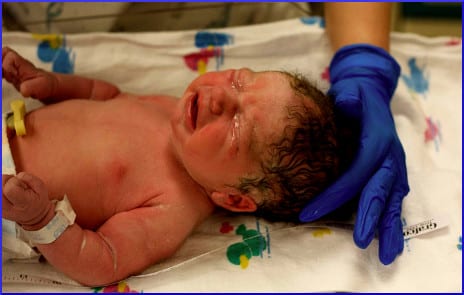Childhood Obesity News continues to explore the complicated links between antibiotics, prematurity, ototoxicity, obesity, and epigenetics.
A child born early is more likely to become obese than a full-term child. To prevent infection, it is likely that antibiotics will be administered to a premature baby, increasing the obesity risk. Antibiotics also increase the likelihood of hearing loss, and a deaf child is more likely than his hearing counterpart to be obese. At the present time, with regard to obesity issues, the deaf community is just beginning to be recognized as understudied and underserved. To confuse matters even more, every passing month brings more evidence that the effects of any and all of these conditions can influence future generations in ways we barely understand.
In the 1990s in the United Kingdom, the Avon Longitudinal Study showed that children who had received antibiotics during their first half-year of life were more likely to become obese toddlers. In 2012, a study by the New York University School of Medicine confirmed a suspicious relationship between treating babies under six months of age with antibiotics and their tendency to beef up by the time they reach their third year. The researchers theorized that disruption (read: death) of healthy gut bacteria somehow led to over-absorption of calories. Dr. Charles Bailey, from Children’s Hospital of Philadelphia, agreed:
One of the side effects of [prescribing a] broad-spectrum antibiotic is not just an upset stomach…not just a little bit of diarrhea that will go away in a week, but…an increased risk of being obese 3 years later.
On the question of whether antibiotic overuse bears any blame for childhood obesity, the answer seems to be affirmative. The nutrients taken in by the body are processed by the intestinal fauna, and if those microorganisms are killed off by antibiotics, trouble ensues. A creature called H. Pylori, for instance, influences the production of the hormones leptin and ghrelin, both of which are connected with obesity.
By now, it is no surprise that future generations are affected. When a girl grows up with an inadequate supply of beneficial fauna, she is unable to pass along the bacterial birthright to the fetus she gestates, who is born already handicapped by a deficient microbiome. Our intestinal tenants influence our size in other labyrinthine ways, and this problem is non-trivial. Michael Pollan wrote:
Children in the West receive, on average, between 10 and 20 courses of antibiotics before they turn 18. And those prescribed drugs aren’t the only antimicrobials finding their way to the microbiota; scientists have found antibiotic residues in meat, milk and surface water as well.
Many activists have tried to warn the public about the ubiquity of these substances. The meat industry accounts for about 70 percent of America’s antibiotic use, which is passed along to any meat-eaters. In a way, the causation of obesity by antibiotics is good news, because that can be changed. There seems to be a slow movement away from meat consumption. On the medical side, retirement is gradually reducing the number of physicians who saw broad-spectrum antibiotics as their go-to answer for everything.
The awareness of doctors can be raised, and parents can be educated to not blindly demand antibiotics for every sniffle. Better yet, scientists can tweak the molecular structure of the medications themselves, tailoring them to cause less harm. It is difficult and very time-consuming, but do-able, as has been shown by Dr. Anthony Ricci and Dr. Alan Cheng. The exciting story of their quest for an aminoglycoside that does not cause deafness can be found at Stanford University’s website.
Your responses and feedback are welcome!
Source: “Early Antibiotic Use Linked to Childhood Obesity,” nytimes.com, 08/21/12
Source: “Medscape Medical News,” Medscape.com, 11/19/13
Source: “Some of My Best Friends Are Germs,” MichaelPollan.com, 05/15/13
Source: “New version of common antibiotic could eliminate risk of hearing loss, study finds,” med.stanford.edu, 01/02/15
Image by Howard Lewis Ship


 FAQs and Media Requests:
FAQs and Media Requests: 











